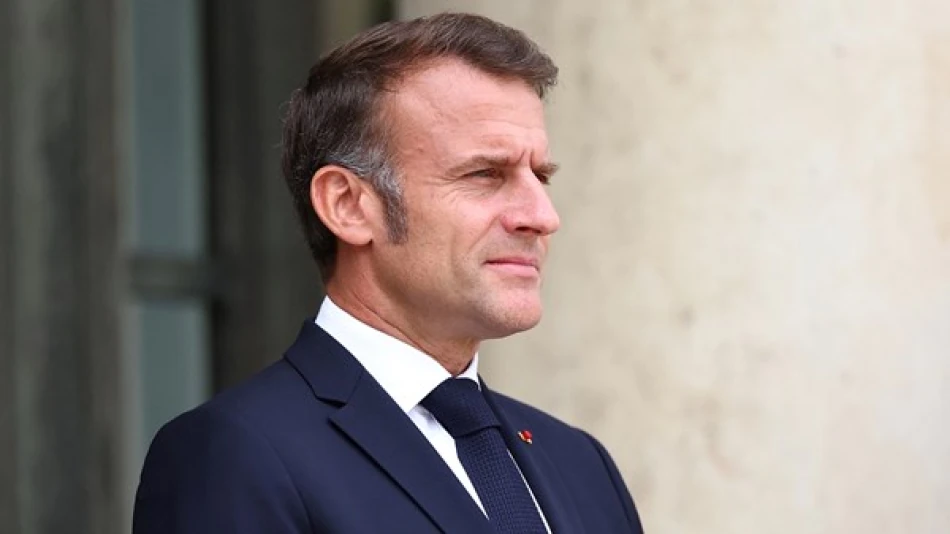
Macron Considers Palestinian Statehood Recognition: A Pivotal Diplomatic Shift
Macron Announces France Will Recognize Palestinian State at UN Assembly
French President Emmanuel Macron declared Thursday that France will formally recognize Palestine as a sovereign state during the United Nations General Assembly in New York this September. The announcement positions France among a growing number of European nations breaking with decades of diplomatic caution on Palestinian statehood, potentially accelerating international momentum toward a two-state solution.
A Strategic Diplomatic Shift
Macron framed the decision as fulfilling France's "historical commitment to a just and lasting peace in the Middle East" in posts on X and Instagram. The timing suggests France is leveraging the high-profile UN platform to maximize international attention and encourage other nations to follow suit.
This move represents a significant departure from France's previous position of supporting Palestinian statehood in principle while avoiding formal recognition. The shift aligns France more closely with countries like Norway, Ireland, and Spain, which recognized Palestinian statehood earlier this year, and distances it from the United States and Germany, which maintain that recognition should come through direct Israeli-Palestinian negotiations.
European Momentum Building
France's announcement comes amid growing European frustration with the stalled Middle East peace process and ongoing conflict in Gaza. Slovenia and Malta have also signaled intentions to recognize Palestine, suggesting a coordinated European approach that could reshape international diplomacy in the region.
The September timing is particularly strategic. The UN General Assembly's annual session draws world leaders and media attention, providing an ideal stage for diplomatic announcements. Macron's decision to use this platform indicates France wants to encourage broader international recognition rather than act in isolation.
Implications for Middle East Diplomacy
For Palestinian leadership, French recognition represents a major diplomatic victory that could strengthen their position in future negotiations. Currently, 139 of the 193 UN member states recognize Palestine, but major Western powers have largely held back, making France's move particularly significant.
The announcement may complicate France's relationships with Israel and the United States, both of which oppose unilateral recognition efforts. However, it positions France as a leader in European Middle East policy and could pressure other Western allies to reconsider their positions.
Whether this diplomatic shift translates into tangible progress toward peace will depend largely on how other major powers respond and whether it creates new momentum for substantive negotiations between Israelis and Palestinians.
Most Viewed News

 Layla Al Mansoori
Layla Al Mansoori






